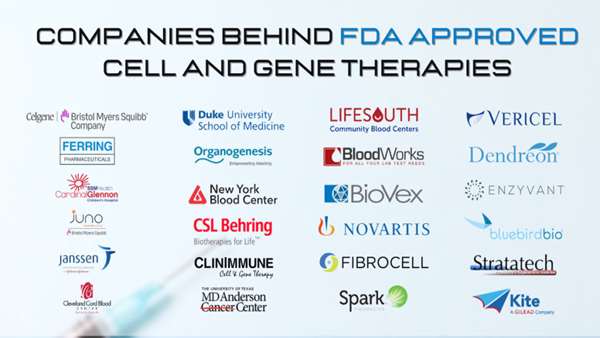Today, researchers and clinicians are under great pressure to develop therapies capable of reversing or significantly impacting the progression of disease. In recent years, the arrival of the cell and gene therapy industries have introduced the possibility of providing transformative, durable and potentially curative outcomes for a diverse range of life-threatening conditions, as well as injuries, degenerative diseases, genetic disorders, and cancers.
Cell therapy is the utilization of living cells for the treatment or cure of disease. It can involve both native (unmodified), as well as engineered or gene-edited cells.
Gene therapy is involves the insertion of functional genes into cells to replace faulty genes for the purpose of treating genetic diseases. Usually, a virus is genetically engineered to carry and deliver the therapeutic gene into the cells of the patient’s body. When the treatment is successful, the new gene delivered by the vector produces a functioning protein.
FDA Approved Cell and Gene Therapies
At present, 27 cell and gene therapies have been approved within the United States. To date, no exosome therapies have received FDA approval, although the clinical trial pipeline looks promising.
The majority of these products are umbilical cord blood derivatives, representing 8 of the 27 cell and gene therapy approvals to date (29.6%).
CAR-T cell therapies represent the next largest segment, composing 6 of the 27 cell and gene therapy approvals (22.2%). The approved CAR-T cell therapies in the U.S. include: Abcema, Breyanzi, Carvykti, Kymriah, Tecartus, and Yescarta (listed in alphabetical order).
https://bioinformant.com/u-s-fda-approved-cell-and-gene-therapies/




ارسال به دوستان